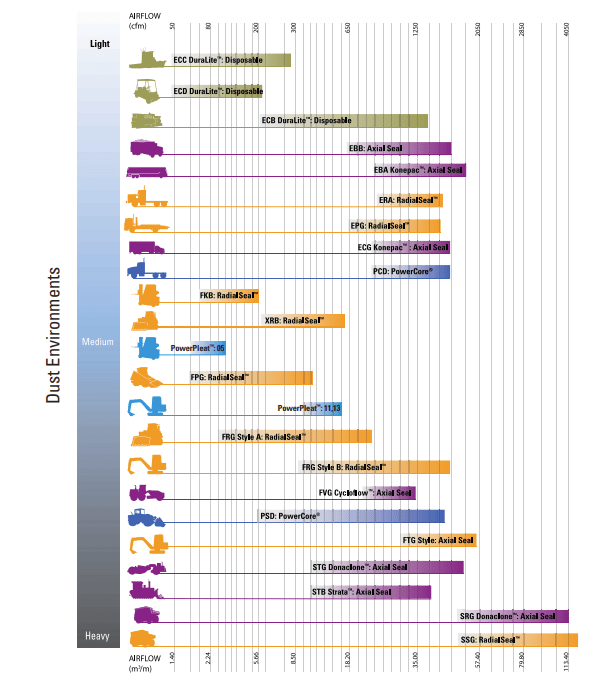MiniMe4Eng
Electrical
I have this Dust Collector (wood working)
The filter is 5microns and my garage all covered in dust because of the inefficiency of this filter.
I have been using a 3M respirator when the things got really bad and I did a lot of work (this is a DIY workshop)
I am now trying to replace the original filter (a bag) with an high efficiency air filter but still pay a decent price for the filter
The woodworking community has been testing various filter models.
The gold standard are the Whynn environmental filters but they are going to cost more than the table saw or the dust collector I have
The alternatives are Donaldson Truck filters which are also 0.5micoron and 99.9 efficiency
- Donaldson P181099
The dust collector is a 2HP Harbor Freight
My question is this: how can I objectively calculate what CFM rate can the Donaldson filters deliver?
P181099 seems to be larger but I am wondering if the DC will benefit from that or maybe P181038 can already match the dust collector CFM?
The filter is 5microns and my garage all covered in dust because of the inefficiency of this filter.
I have been using a 3M respirator when the things got really bad and I did a lot of work (this is a DIY workshop)
I am now trying to replace the original filter (a bag) with an high efficiency air filter but still pay a decent price for the filter
The woodworking community has been testing various filter models.
The gold standard are the Whynn environmental filters but they are going to cost more than the table saw or the dust collector I have
The alternatives are Donaldson Truck filters which are also 0.5micoron and 99.9 efficiency
- Donaldson P181099
Efficiency: 99.9
Inner Diameter: 9.49
Length: 18.06
Outer Diameter: 13.84
Overall Length: 18.56
Style: Round
-Donaldson P181038Inner Diameter: 9.49
Length: 18.06
Outer Diameter: 13.84
Overall Length: 18.56
Style: Round
Efficiency: 99.9
Inner Diameter: 11.07
Length: 23.06
Outer Diameter: 17.58
Overall Length: 23.56
Style: Round
Inner Diameter: 11.07
Length: 23.06
Outer Diameter: 17.58
Overall Length: 23.56
Style: Round
The dust collector is a 2HP Harbor Freight
SKU(s) 97869, 61790, 45378
Brand CENTRAL MACHINERY
Flow rate 1550 CFM
Volume 70 gallon
AC Volts 120
Amperage 20
Certification CSA, ETL
Horsepower 2
Inlet size 4 in.
Product Height 75-1/2 in.
Product Length 33 in.
Product Weight 100 lb.
Product Width 22 in.
Shipping Weight 98.00 lb.
Filtration (microns) 5 microns
Brand CENTRAL MACHINERY
Flow rate 1550 CFM
Volume 70 gallon
AC Volts 120
Amperage 20
Certification CSA, ETL
Horsepower 2
Inlet size 4 in.
Product Height 75-1/2 in.
Product Length 33 in.
Product Weight 100 lb.
Product Width 22 in.
Shipping Weight 98.00 lb.
Filtration (microns) 5 microns
My question is this: how can I objectively calculate what CFM rate can the Donaldson filters deliver?
P181099 seems to be larger but I am wondering if the DC will benefit from that or maybe P181038 can already match the dust collector CFM?



